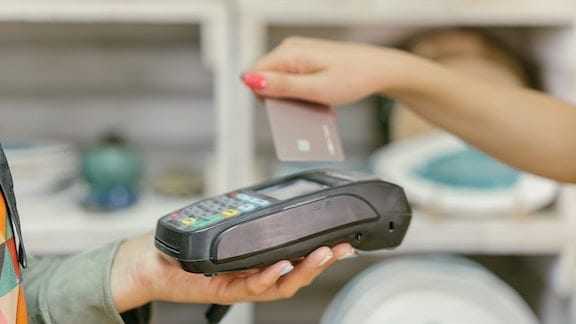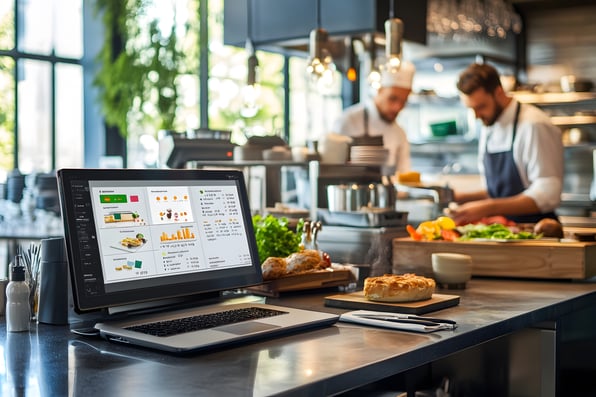Choosing the Best POS System for Senior Living

Senior living communities are an increasingly popular choice for older adults. Residents choosing a community look for a wide variety of services and amenities to make their lives simple, comfortable and pleasant. Though meeting these expectations might sound like tall asks, they can be easily met by utilizing various assisted living technologies that offer residents accessible platforms to manage everything from monthly plans for meals to spending accounts for on-site shops. All that senior living communities have to do is employ them!
Importance of a POS System in Senior Living Communities
A point of sale (POS) system that works across services within a senior living community can act as an all-access sale solution that enables residents to eat and shop in their community. Offering robust management solutions for dining, retail and other personal services, these integrated systems can also incorporate a user account platform that lets residents track expenses, manage meal plans, order food online, and specify any other preferences.
Apart from improving the lives of the residents, POS systems and their advanced features can also reduce the manual work of staff and help improve the overall quality of care for residents. Needless to say, POS systems are game-changers for residents and staff alike.
Factors to Consider When Choosing a POS System
Though POS systems invariably have some advantages, it’s important to consider the specialized needs of your senior living community when choosing the right system for you. Residential communities for older adults differ from other hospitality services such as hotels, cruise ships and college accommodations. While all of them prioritize quality living and can benefit from a universal POS system, the residents in a senior community need a system that accounts for their specific needs, like medical and safety considerations, dietary preferences, and any changes that may occur over time.
Thus, it’s important to be deliberate in considering what your community needs the system to accomplish, the amount of flexibility afforded, any other systems in place, and the measures required to ensure data security.
Focus on Resident Dining Experience
For many residents in senior living communities, meal times are often the highlights of their days. Senior living dining facilities can be the social center of the community. They provide a place for all residents to gather during the day. Residents enjoy the convenience of having meals prepared for them as well as the opportunity to share a meal and spend time with friends or welcome visitors. Therefore, a senior living dining services POS system should be resident-focused and ensure the best resident dining experience.
However, delicious, nutritionally balanced menu options are only one part of providing a great dining experience - residents and families expect a simple ordering system that allows for personalization. Any POS systems that a senior living community is considering should be sure to allow staff to access resident profile information, including images, meal plan balances and special diet information. This helps to ensure that the dining experience is tailored to each resident's needs, tastes, and considers food allergies or medical needs.
Further, a simple, easy-to-use ordering system is an expectation for residents. A POS system designed with senior living in mind should offer touch screen ordering features to make selections from a menu that contains images and descriptions of food, including personalized on-screen alerts about allergens and special diet needs so residents can make informed choices and staff can assist residents in making those decisions.
Customization for Senior Living Communities
The needs of each senior living community vary according to the needs of its residents. A community that offers independent living solutions for active seniors has a different need profile compared to a community specializing in memory care. On the other hand, communities that provide multiple levels of care may want systems that bundle features and allow resident accounts to adjust as they move between care levels.
Thus, an effective POS system should be customizable to allow different levels of resident input and access while being available to all residents, regardless of their level of independence. Further, the system should also offer a remote login and management option for family members to access real-time data and detailed reports, helping them effectively oversee the care of loved ones from afar.
Lastly, although it’s important to select a POS system that meets the needs of residents at the time of implementation, community managers should keep in mind that future needs might differ as level of care changes. Communities should choose a dynamic system that can accommodate changing resident needs and allow for movement between care settings.
Integration with Existing Systems
It is critical to find a system that easily integrates with any existing technology at an assisted living community. An ideal POS system should make things easier for staff and residents, not add complexity. The interface of the POS system needs to be intuitive and easily linked to the online services currently in use so that staff or residents don't feel confused or frustrated while learning to use the new system. Plus, a complicated POS system means more troubleshooting and longer training time for staff.
A new POS system should accurately sync to legacy systems used for advanced reporting on food costs, while also managing resident engagement activities, medical record-keeping, credit card processing, menu management and retail inventory levels.
Mobility and Flexibility
Senior living communities often incorporate a variety of dining, shopping and personal services on-site. Ideally, the best POS system for senior living is universal across all these services, simplifying payments for residents. A universal POS system should give residents the freedom to choose their mode of payment. For communities that prefer a cashless system, the POS system should allow purchases to be registered resident accounts or accept credit and debit cards.
A POS system should be able to be used across multiple dining options in the community, accommodate resident meal plans and allow for in-room meal delivery.
Additionally, these POS systems can also be set up to allow purchases at community-managed stores. With some of them having capabilities for adding tips, these POS systems can be extremely useful for services such as on-site salons and barbershops.
Security, Compliance and Data Protection
Data security is a crucial function of any IT system that contains personal information. Given that senior living residents and their families entrust the community with personal, financial and medical data, it's imperative to choose a safe solution with built-in data protection.
In addition, community managers should work with POS system vendors to ensure that security is regularly updated and has adequate threat monitoring capabilities.
Choose the Best POS System for Your Senior Living Needs
eMenuCHOICE has been providing excellent POS and senior living dining services for communities since 2016. We understand the unique needs of community staff and residents, and we guarantee you we can seamlessly establish a system that elevates your community. In fact, we partner with some of the top senior living community management systems to offer turnkey integration for clients. Interested? Learn more about our senior living POS solution.



